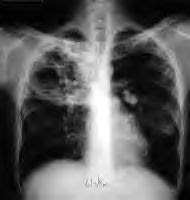WHAT'S NEW IN TUBERCULOSIS
Sunday, 11 November 2007
OPEN SOCIETY INSTITUTE ON TB EPIDEMIC IN EUROPE AS INFECTION RATES
Controlling tuberculosis in Europe requires the participation of community groups and activists, according to an official “offer of partnership” to be presented to Europe’s ministers on Monday,
October 22 at the Ministerial Forum, “All Against Tuberculosis,” convened by the World Health Organization (WHO) and the German government. Ministers of health, finance, and justice from the 53 European Member States are expected to declare TB a “public health threat” and to commit new resources to tackle the epidemic in Europe.
TB is a preventable and curable disease. Yet, in 2005, 65,700 people in the European region died from TB, according to the WHO. The countries of the former Soviet Union account for 72 percent of all cases of TB reported in the European region. Greece, Sweden, and the United Kingdom also reported significant increases in TB infections in recent years.
“Rises in the rates and severities of infections make it clear that TB can no longer be dismissed as a disease of the past,” said George Soros, OSI Chairman. “I applaud the European ministers for finally recognizing TB as a regional health priority. Europe should also increase funding to fight TB in the developing world, where it continues to be one of the top killers.”
The WHO has invited Zemfira Kondur, an advocate from the Ukraine who works with marginalized Roma communities, to present civil society’s offer of partnership at the Ministerial Forum. “The burden of TB is greatest on the most marginalized communities, including Roma and other ethnic minorities,” said Kondur. “We urge our government leaders to accept our offer of partnership so we can work together to end this disease of poverty and inequality once and for all.” Most TB cases are concentrated among groups who have limited access to health care or who live in conditions that facilitate the spread of TB.
In London, TB outbreaks have disproportionately impacted homeless people, prisoners, and people who use drugs.
Cases of drug-resistant TB in Europe are among the worst in the world, and the number of people infected with both HIV and TB is also growing.
“The outbreak of HIV and TB co-infection has a devastating impact on patients, their families, and communities,” said Paul Thorn, director of the Tuberculosis Survival Project. “In order to control the spread of TB, we need health services to work with us, not just for us.”
http://tinyurl.com/29aw8s
Subscribe to:
Post Comments (Atom)





No comments:
Post a Comment